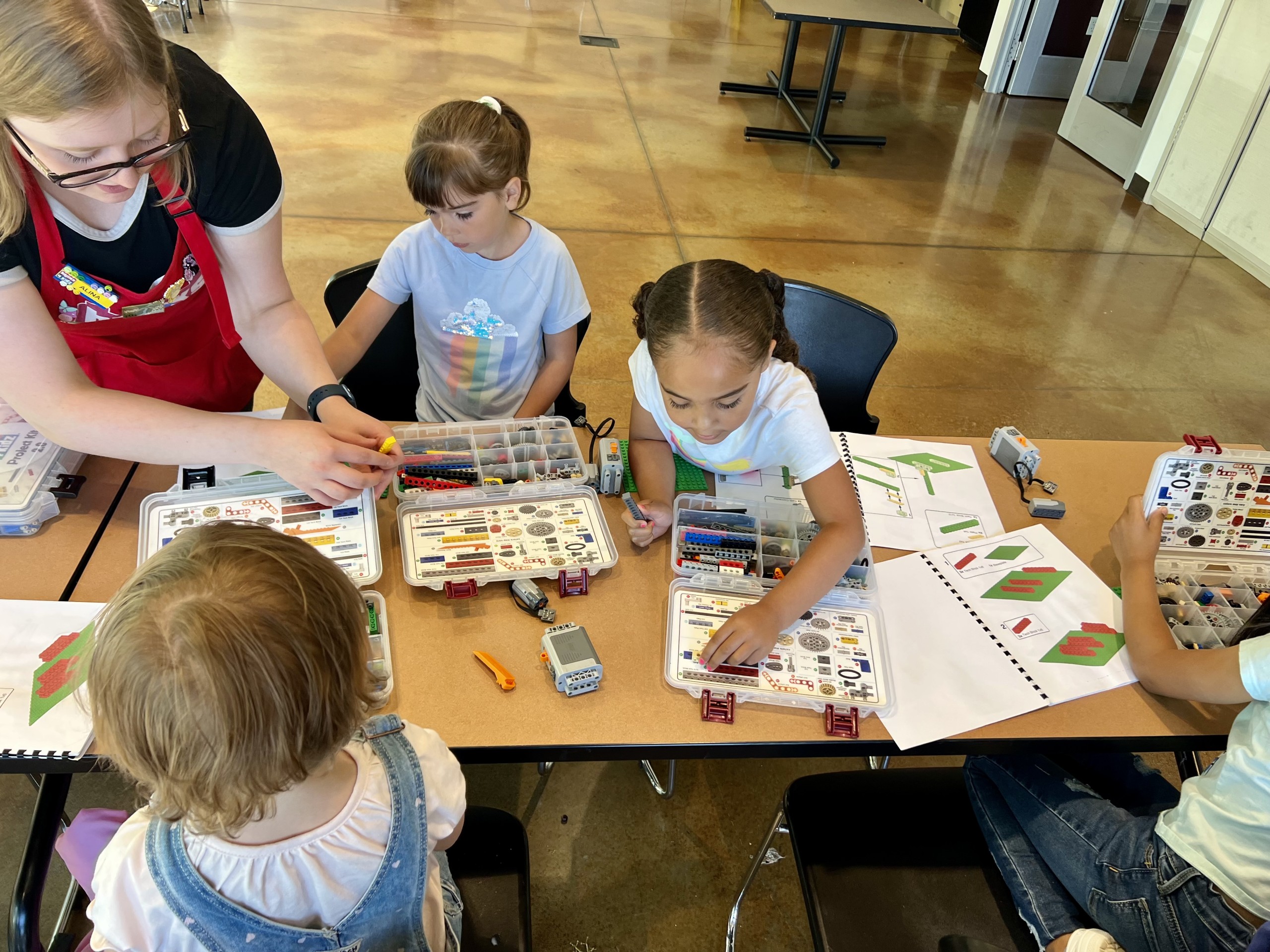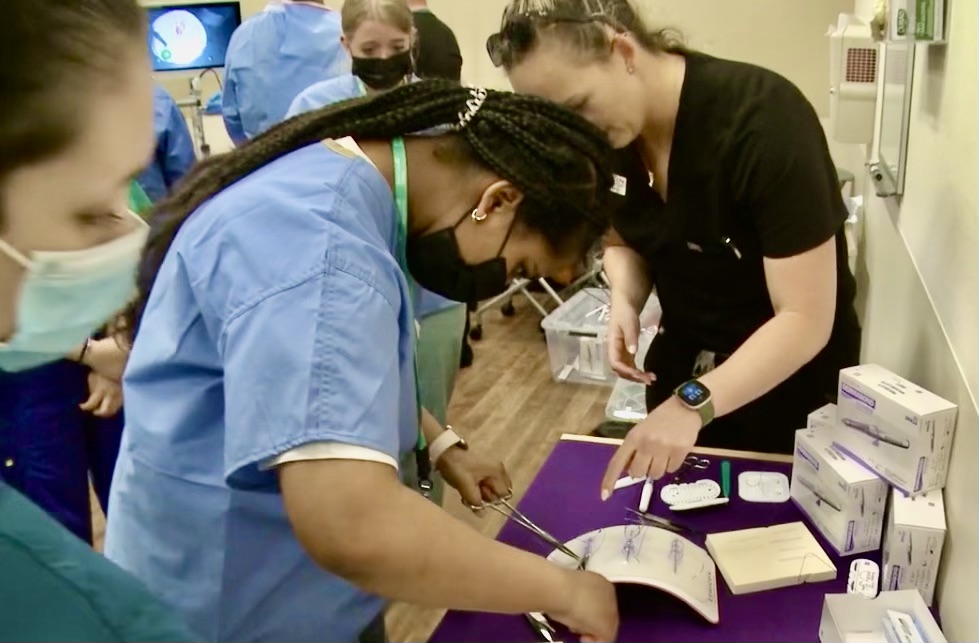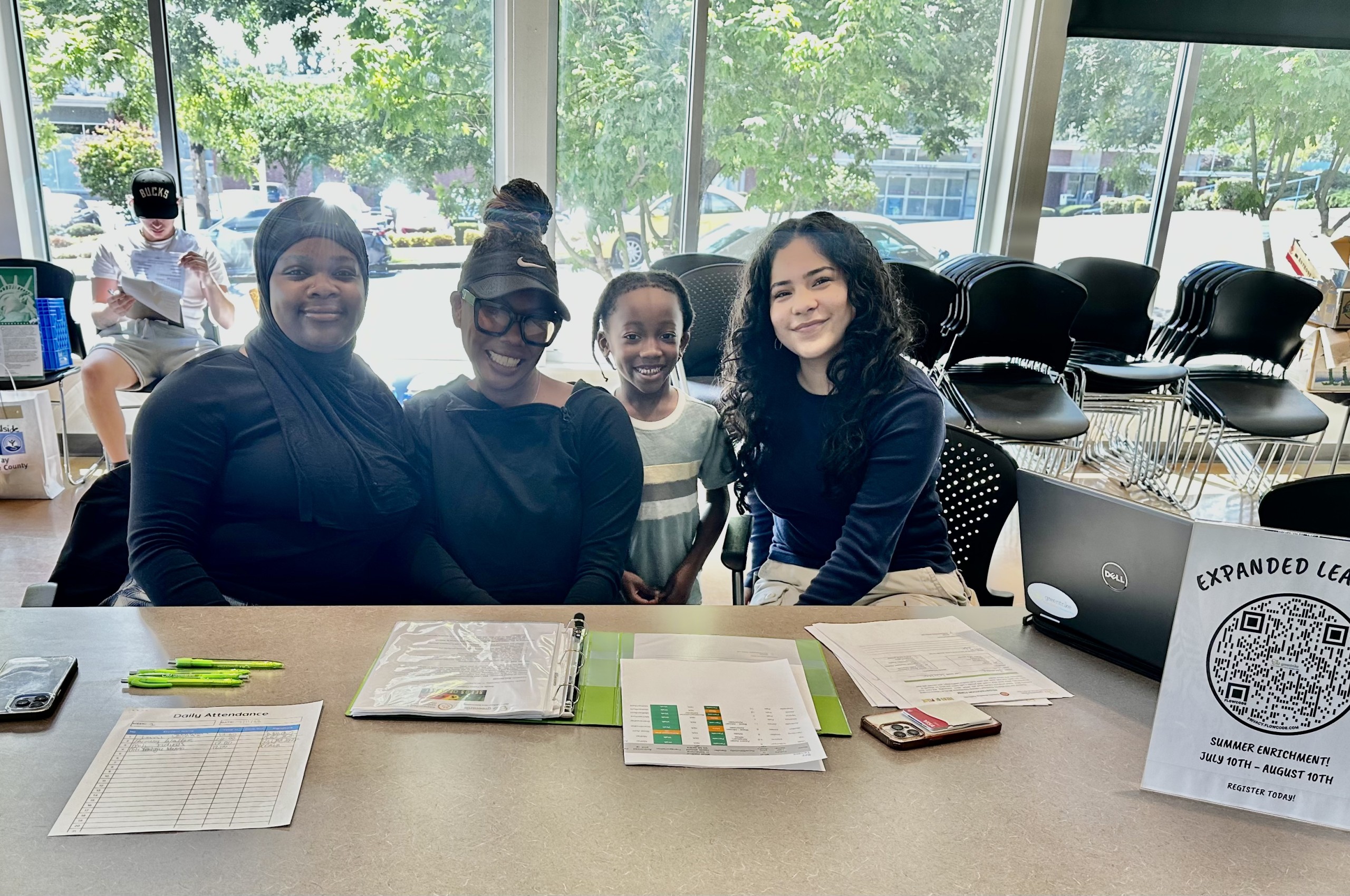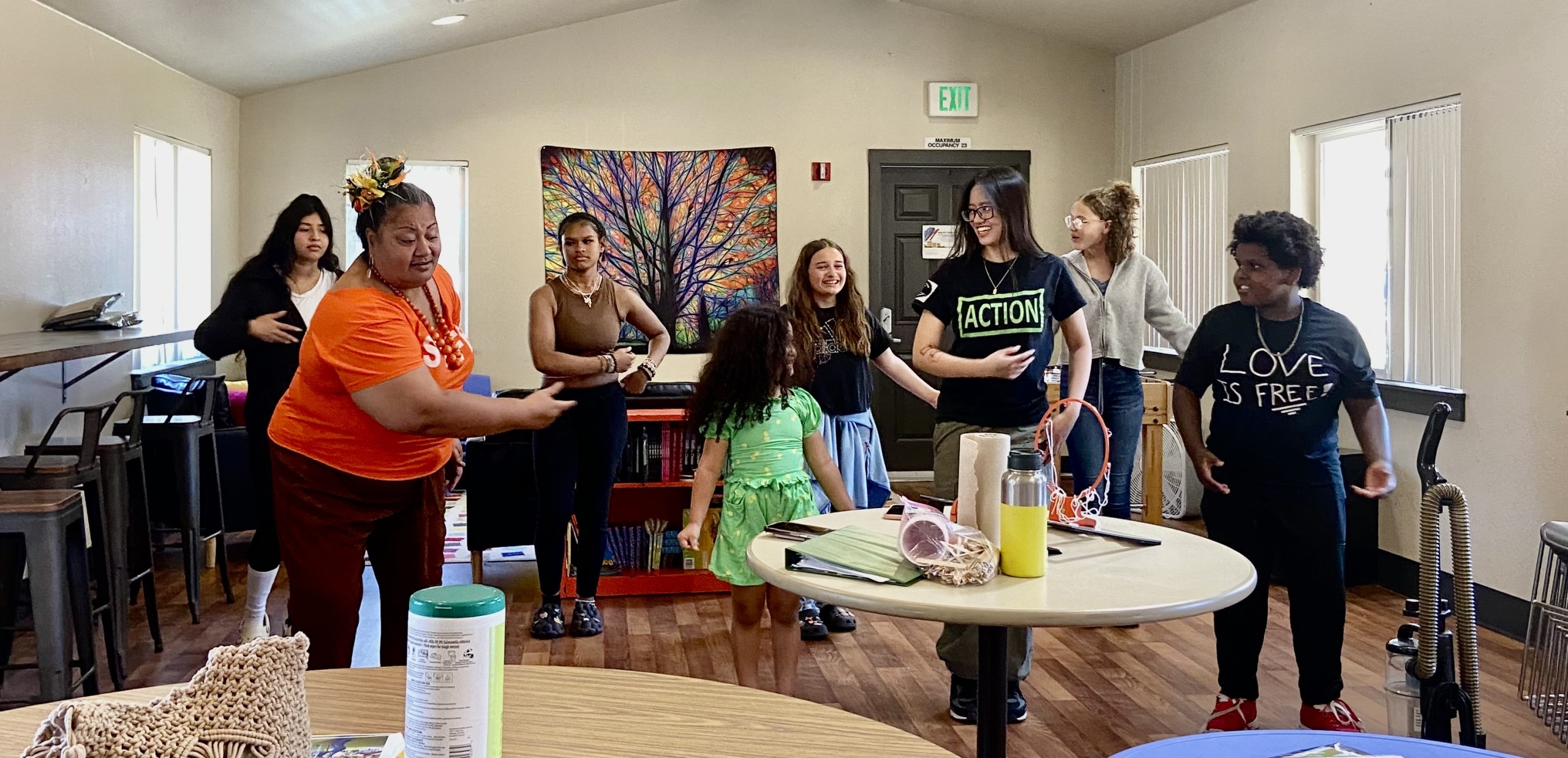Last week was National Summer Learning week and I had a great time visiting sites in the Pierce County community where some very cool and innovative summer learning programs are happening right now. I am a firm believer that the intersecting systems that support youth outside of the traditional school day (and during the summer months) are critical to fostering passion and purpose on a young person’s journey to becoming who they are destined to be. This ecosystem of out-of-school time spaces is uniquely positioned to address things that schools miss or simply cannot take on.
Here’s a quick download on what moved and inspired me.
2-Gen Program: The intersection of expanded learning and housing
One cool summer partnership that continues to warm my soul is the Tacoma Housing Authority (THA) 2-Gen Program led by program manager, Byron Williams. After a successful pilot last summer, programming is in full swing this year. Seeds of Peace (SOP) Projects site leads (Tina, Heaven, Isha and Jake and SOP team members Riya and Day) offer program over site, as Greentrike plugs in with additional expanded learning providers to support this partnership.

During my visit, Byron and I had the chance to catch up and talk about safe spaces, how that shows up in community, and what it looks like in his program. This made us think: What would it look like to bring expanded learning opportunities and continuous improvement work directly to THA properties? And while we are at it, could we create summer work and mentorship opportunities for high school and college students as well? Byron and team have also engaged with THA youth and families to learn what they want from summer enrichment opportunities. They weren’t surprised to hear that parents want their kids safe, close, and having fun!
When you are responsive to community and youth voice, you will activate young people to find their spark, build authentic relationships, and give them the freedom to just be a young person.
MASH Camp: The intersection of summer learning, enrichment, and healthcare
Another inspirational program that has been operating in Pierce, Kitsap, and North Thurston communities for over 20 years is MASH (MultiCare Academy for Students in Healthcare) camp. This experience is coordinated by the MultiCare Center for Equity and Wellness team and the amazing Sheri Mitchell and Nancy Thompkins. MASH is a summer learning program that hosts 85 high school students from Pierce, Kitsap and Thurston Counties who are interested in direct and indirect career pathways in the health sector.
I was in awe to see all the amazing skills these young people are learning—like cleaning and closing sutures, casting, and inserting IV lines!

I was happy to have the chance to observe this program in real-time and see young people experiencing hands on learning. While it may not seem like a big deal to everyone, it felt momentous to see them working with mannequins of different skin colors—a teaching practice that has not always been the case. As a matter of fact, I don’t think I have ever seen a simulation dummy that was black or brown until last week. This modeling of inclusion and representation is absolutely critical in preparing young minds to respond with equity and skill in their chosen careers.
Racial bias continues to show up in health care and I am so glad this program embeds cultural responsiveness and social and emotional learning into their curriculum.
Engage Every Student Summit
Finally, to wrap up the week, I had the pleasure of attending the Engage Every Student Summit at the invitation of Every Hour Counts—an amazing national organization that brings together youth serving intermediaries to lead critical conversations at the federal level around advocacy, legislation, and funding for the youth development field.
Gina Warner, President & CEO of the National Afterschool Association, hit a home run with her recommendations around youth development which includes non-traditional school time spaces like expanded Learning that happens before and after school, during lunchtime, and over the summer. She reiterated what youth development professionals have believed to be true for a long time—this sector’s role in supporting young people and creating a better ecosystem for the field can greatly impact social and economic outcomes when we do these things:
- Invest in professional development, training, and continuous improvement to build capacity for those who support and serve young people.
- Invest in great staff and pay them competitively
- Invest in opportunities for peer learning and convening
- Find where the eco-system of youth development aligns with advocacy and policy efforts and fund it
- Create equitable access to diverse options for out-of-school time care to support working families
- Invest in paid internships and mentorship that give the now and next generation a view into what the youth development profession is all about
I am inspired to see high quality programming in action and equally encouraged by how our local, statewide, and national partners are taking a deeper look into how we center our children and youth in a more intentional and inclusive way.


